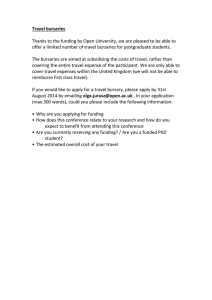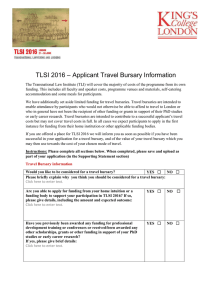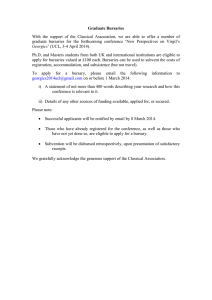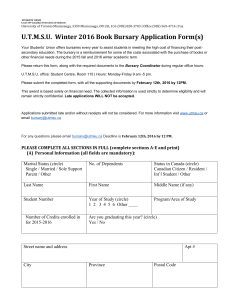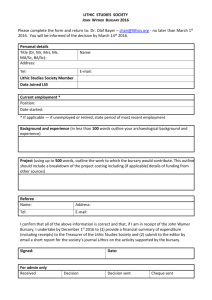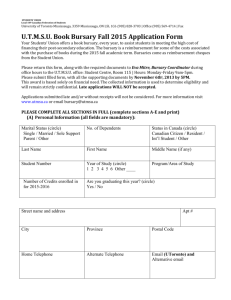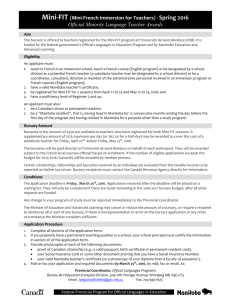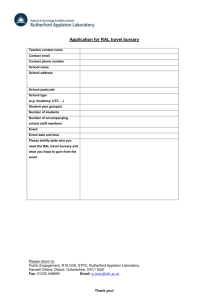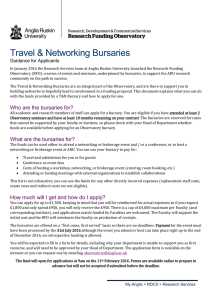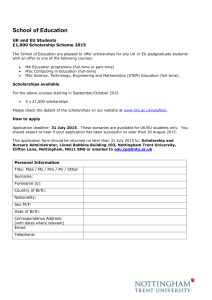Want to Study Wildlife
advertisement
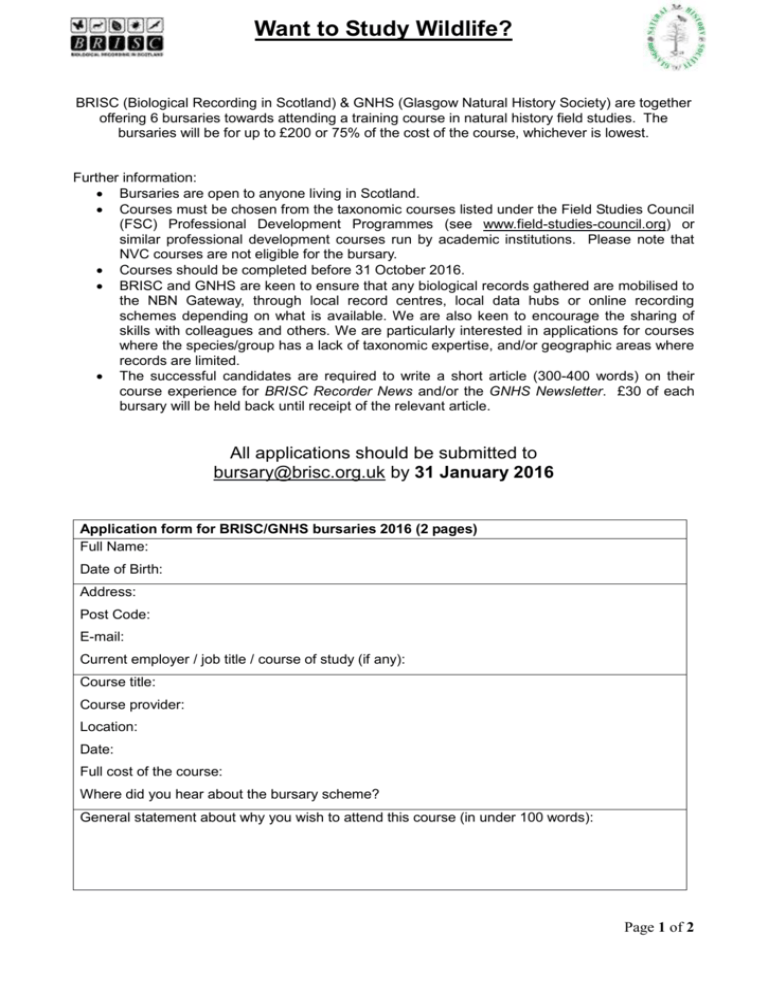
Want to Study Wildlife? BRISC (Biological Recording in Scotland) & GNHS (Glasgow Natural History Society) are together offering 6 bursaries towards attending a training course in natural history field studies. The bursaries will be for up to £200 or 75% of the cost of the course, whichever is lowest. Further information: Bursaries are open to anyone living in Scotland. Courses must be chosen from the taxonomic courses listed under the Field Studies Council (FSC) Professional Development Programmes (see www.field-studies-council.org) or similar professional development courses run by academic institutions. Please note that NVC courses are not eligible for the bursary. Courses should be completed before 31 October 2016. BRISC and GNHS are keen to ensure that any biological records gathered are mobilised to the NBN Gateway, through local record centres, local data hubs or online recording schemes depending on what is available. We are also keen to encourage the sharing of skills with colleagues and others. We are particularly interested in applications for courses where the species/group has a lack of taxonomic expertise, and/or geographic areas where records are limited. The successful candidates are required to write a short article (300-400 words) on their course experience for BRISC Recorder News and/or the GNHS Newsletter. £30 of each bursary will be held back until receipt of the relevant article. All applications should be submitted to bursary@brisc.org.uk by 31 January 2016 Application form for BRISC/GNHS bursaries 2016 (2 pages) Full Name: Date of Birth: Address: Post Code: E-mail: Current employer / job title / course of study (if any): Course title: Course provider: Location: Date: Full cost of the course: Where did you hear about the bursary scheme? General statement about why you wish to attend this course (in under 100 words): Page 1 of 2 Please also complete the following questions (in under 100 word per section): How will you share your records? How will you share your skills with others? Do you consider your taxonomic group to be under-recorded? Do you consider your geographical area to be under-recorded? Why will this bursary assist you? Page 2 of 2
